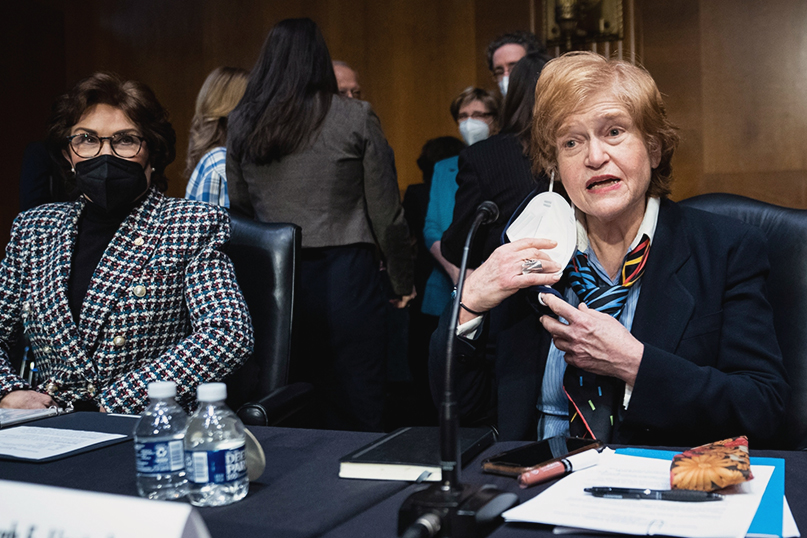
(JTA) – Antisemitism is often not taken seriously until it becomes deadly, said Deborah Lipstadt, the Holocaust scholar and the State Department’s newly appointed antisemitism monitor. Lipstadt chose the U.S. Holocaust Memorial Museum for her first talk Thursday. She made good on her pledge to identify and target antisemitism on all all sides. “Antisemitism does not come from one end of the political spectrum,” Lipstadt said. “It is ubiquitous and is espoused by people who agree on nothing else or, better put, disagree on everything else.”
She spoke of the threat from the far-right, mentioning the 2017 neo-Nazi march in Charlottesville. But she also alluded to her frustrations with the left. “Too often, when there is an act of antisemitism, those who condemn it cannot bring themselves to focus specifically on this particular prejudice,” she said. In 2019, Jewish groups, Republicans and some Jewish Democrats were unhappy when a resolution condemning antisemitism was amended to include condemnations of other forms of bigotry, including Islamaphobia.
In her remarks and later in a conversation with Sara Bloomfield, the museum’s director, Lipstadt said that antisemitism is often not taken seriously until it is too late.
“Too many people, organizations and institutions do not take antisemitism seriously,” she said. “They fail to include it in their litany of legitimate prejudicial hatreds. They wonder what is it that Jews are complaining about? After all, they are wealthy and powerful.” Talking to Bloomfield, she said people tend not to take antisemitism seriously until it turns deadly, citing attacks on Jews in Pittsburgh in 2018, in New Jersey in 2019 and in Paris in 2015. “Then they suddenly stop but like if it’s something else it’s not taken seriously to some percent, at least at first glance, as many other victims of oppression,” Lipstadt said.
The post of antisemitism monitor was established in 2004 to track antisemitism overseas and make representations to foreign governments to address it, but Lipstadt said those lines were now blurred. “It is increasingly hard to differentiate between antisemitism that is foreign and that which is domestic,” she said. That was a view adopted by her Trump administration predecessor, Elan Carr, who was in the audience and whom Lipstadt acknowledged in her remarks. In another nod to continuity with the Trump administration, Lipstadt praised the Abraham Accords, normalizing relations between Israel and four Arab countries, brokered by the Trump administration in its final months. “Working together with the countries that have signed on to the Accords and the normalization agreements, we can address some of the violent extremist antisemitism which often has had lethal consequences,” she said.
Main Photo: Deborah E. Lipstadt, nominated to be Special Envoy to Monitor and Combat Anti-Semitism, with the rank of Ambassador, appears during her Senate Foreign Relations nomination hearing on Capitol Hill, Feb. 08, 2022. (Jabin Botsford/The Washington Post via Getty Images)








 Southern New England Jewish Ledger
Southern New England Jewish Ledger













